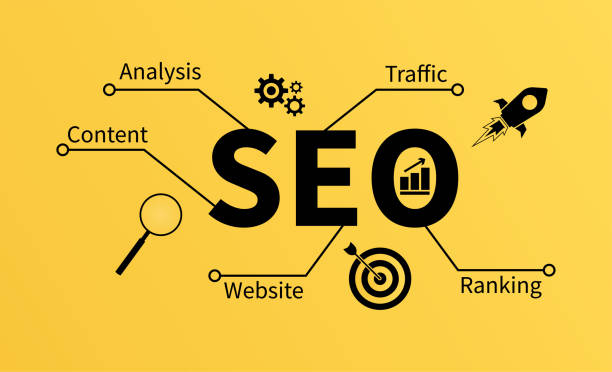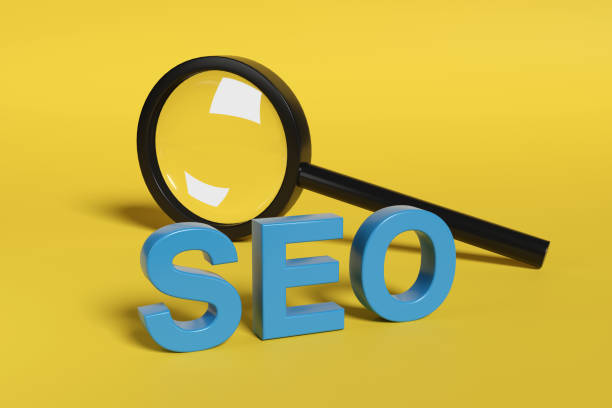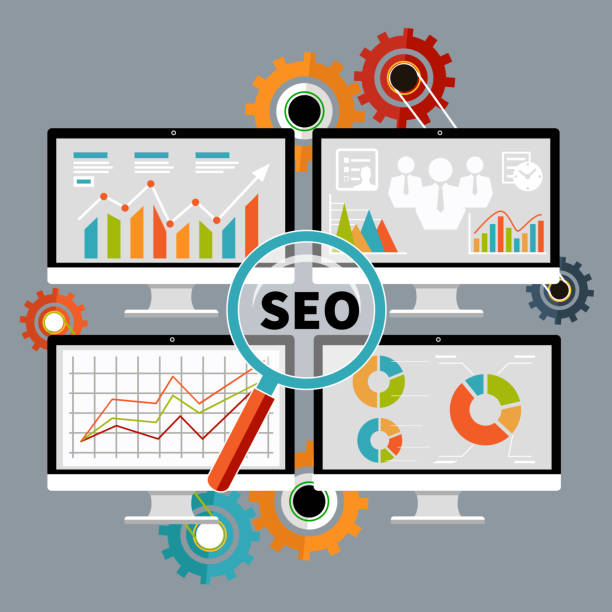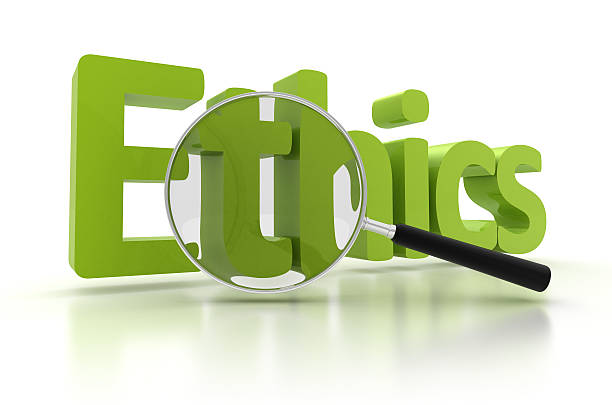What is Off-Page SEO and Why is it Important?

#Off-Page SEO, also known as Off-Page SEO, is the set of activities that take place outside of your website to improve your site’s ranking in Google search results and other search engines.
Unlike On-Page SEO, which focuses on optimizing website content and structure, Off-Page SEO focuses on building the credibility and authority of your website through external resources.
The importance of Off-Page SEO is that search engines use it as a signal of trust and quality.
The more websites that link to your site (backlinks), the more search engines consider your site to be more credible and valuable, thereby improving its ranking.
Learn more about SEO.
In other words, Off-Page SEO tells search engines that your website is a valuable and reliable resource that deserves a higher ranking.
This not only increases organic traffic to your website but also helps to increase brand awareness and build trust among your target audience.
In fact, Off-Page SEO is one of the main pillars of a successful SEO strategy, and ignoring it can prevent you from achieving desired results.
#Off_Page_SEO activities include link building, content marketing, social media activity, and online branding.
Ultimately, investing in Off-Page SEO can help you achieve higher rankings in search results in the long run, attract more traffic to your website, and achieve your business goals.
To better understand the Off-Page SEO process, we need to be familiar with the various factors involved.
Are you lagging behind in competition with large online stores?
Rasaweb gets your business online with professional online store design and increases your market share!
✅ Increased brand credibility and customer trust
✅ Easy shopping experience leads to more sales
⚡ Take action now to receive free website design consultation!
Most Important Off-Page SEO Factors

Several factors play a role in Off-Page SEO, each of which affects your site’s ranking in some way.
Here are some of the most important of these factors:
Backlinks: Backlinks are the most important Off-Page SEO factor.
A backlink is a link from another website to your website.
The more high-quality and relevant backlinks to your site, the better your site’s ranking in search results will be.
The quality of backlinks is more important than their number.
A backlink from a reputable and relevant website to your site will have a much greater impact than a backlink from a low-quality and irrelevant website.
Link building strategies.
Domain Authority: Domain Authority is a metric provided by Moz that represents the overall power and authority of a website.
The higher the Domain Authority of a website, the more likely it is to rank higher in search results.
Domain Authority depends on various factors, including the number and quality of backlinks, domain age, and website content.
Off-Page SEO directly affects the increase of Domain Authority.
Brand Mentions: Brand mentions are mentions of your brand name on other websites without linking to your site.
Brand mentions can also help improve your Off-Page SEO because search engines use them as a signal of brand awareness and authority.
Simply put, wherever your brand name is mentioned, it helps your SEO, even if there is no link to your site.
Social Media: Being active on social media and sharing your website content on these platforms can help increase brand awareness and drive traffic to your site.
Although the direct impact of social media on Off-Page SEO is still debated, it can indirectly help improve it, for example, by increasing visits and consequently the likelihood of receiving backlinks.
Off-Page SEO is an ongoing process and requires patience.
By focusing on creating quality content, link building, and social media activity, you can gradually improve your site’s ranking in search results.
Effective Link Building Strategies in Off-Page SEO

Link building is one of the most important and challenging aspects of Off-Page SEO.
Creating quality and relevant links to your site requires a thoughtful strategy.
Here are some effective link building strategies:
Creating High-Quality and Valuable Content: The best way to attract backlinks is to create high-quality and valuable content that others will want to link to.
Your content should provide useful, accurate, and up-to-date information and answer the questions and needs of your target audience.
Different types of content, such as educational articles, infographics, videos, and podcasts, can be effective in attracting backlinks.
Broken Link Building: This strategy involves finding broken links on other websites and suggesting that they be replaced with a link to relevant content on your website.
This is a win-win method because you help the other website fix its broken links while also getting a quality backlink.
Guest Blogging: Guest blogging involves writing an article for other websites in your industry and including a link to your website in the body of the article or in the author section.
This is a great way to introduce your brand to a new audience and get backlinks from reputable websites.
Guide to Writing a Guest Post.
Participating in Online and Offline Events: Participating in online and offline events related to your industry is a great opportunity to connect with other people and get backlinks.
You can get backlinks by presenting at events, sponsoring events, or simply networking with others.
Content Marketing: Content marketing involves creating and sharing valuable and engaging content to attract and retain a target audience.
By producing quality content and sharing it on various channels, you can increase your brand awareness and create more opportunities to receive backlinks.
| Strategy | Description | Benefits |
|---|---|---|
| Creating High-Quality Content | Producing valuable and engaging content to attract audience and links | Increasing site credibility, attracting natural backlinks |
| Broken Link Building | Finding broken links and suggesting replacements | Receiving backlinks, helping other sites |
Remember that link building is a long-term process and requires continuous effort.
By using the right strategies and focusing on the quality of links, you can achieve desirable results in Off-Page SEO.
Social Media and its Impact on Off-Page SEO

As mentioned earlier, the direct impact of social media on Off-Page SEO is still debated.
However, social media can indirectly help improve your Off-Page SEO.
Here are some of the ways that social media can affect Off-Page SEO:
Increasing Brand Awareness: Social media is a great platform to increase your brand awareness.
By sharing your website content on social media, you can introduce your brand to new audiences and increase your brand awareness.
The more brand awareness you have, the more likely people are to link to your website.
Driving Traffic to Website: Social media can help drive traffic to your website.
By sharing engaging and compelling content on social media, you can encourage users to click on the link to your website.
Increasing website traffic can help improve your site’s ranking in search results.
Off-Page SEO is very useful for increasing traffic by producing content.
Creating Engagement with Audience: Social media is a great platform for creating engagement with your target audience.
By answering users’ questions and comments, holding contests and surveys, and sharing relevant and engaging content, you can engage with your audience and build a stronger relationship with them.
More engagement with your audience can help increase brand awareness and drive traffic to your site.
Increasing Social Signals: Some SEO experts believe that social signals, such as the number of likes, shares, and comments on social media, can directly affect your site’s ranking in search results.
However, there is no definitive evidence in this regard.
Nevertheless, being active on social media and increasing social signals can help improve your Off-Page SEO.
Off-Page SEO is a complex process and involves several factors.
By using social media as part of your Off-Page SEO strategy, you can help improve your site’s ranking in search results and achieve your business goals.
Tired of losing customers due to poor online store design? With Rasaweb, solve this problem forever!
✅ Increase sales and visitor-to-customer conversion rate
✅ Smooth and attractive user experience for your customers⚡ Get a free consultation
Content and its Role in Off-Page SEO

Content is king! This clichéd but true statement highlights the importance of content in SEO.
High-quality and valuable content is at the core of a successful Off-Page SEO strategy.
Without engaging and useful content, you can’t attract backlinks, increase your brand awareness, and engage with your target audience.
Off-Page SEO is very difficult without content production.
Here are some of the important roles of content in Off-Page SEO:
Attracting Backlinks: As mentioned earlier, the best way to attract backlinks is to create high-quality and valuable content that others will want to link to.
Your content should provide useful, accurate, and up-to-date information and answer the questions and needs of your target audience.
Different types of content, such as educational articles, infographics, videos, and podcasts, can be effective in attracting backlinks.
Increasing Brand Awareness: High-quality and engaging content can help increase your brand awareness.
By sharing your website content on social media and other platforms, you can introduce your brand to new audiences and increase your brand awareness.
The more brand awareness you have, the more likely people are to link to your website.
Driving Traffic to Website: Engaging and compelling content can help drive traffic to your website.
By optimizing your content for relevant keywords and sharing it on various channels, you can encourage users to click on the link to your website.
Increasing website traffic can help improve your site’s ranking in search results.
Creating Engagement with Audience: Interactive and engaging content can help create engagement with your target audience.
By answering users’ questions and comments, holding contests and surveys, and sharing relevant and engaging content, you can engage with your audience and build a stronger relationship with them.
Therefore, if you want to succeed in Off-Page SEO, you should focus on creating high-quality and valuable content.
By producing engaging and useful content, you can attract backlinks, increase your brand awareness, drive more traffic to your website, and engage with your target audience.
Content is the beating heart of Off-Page SEO.
Analyzing Competitors and its Impact on Off-Page SEO

Analyzing competitors is one of the most important steps in Off-Page SEO strategy.
By analyzing the Off-Page SEO activities of your competitors, you can identify their strengths and weaknesses and use them to improve your strategy.
Off-Page SEO must be aligned with the activities of competitors.
Here are some of the things you should consider when analyzing competitors in Off-Page SEO:
Backlinks: Check which websites your competitors have received backlinks from.
This information can help you identify new link building opportunities.
There are various tools to check competitors’ backlinks, such as Ahrefs, Moz, and SEMrush.
Domain Authority: Check the Domain Authority of your competitors.
This information can help you assess how powerful your competitors are and how much effort it will take to outrank them.
Social Media: Check your competitors’ activity on social media.
This information can help you see how they engage with their audience and what type of content they share.
Content: Check the content of your competitors.
This information can help you see what topics they are writing about and what type of content they are creating.
By analyzing competitors, you can gain valuable information about their Off-Page SEO strategy and use this information to improve your strategy.
For example, if you find that your competitors have received many backlinks from a particular website, you can try to get backlinks from that website as well.
Or, if you find that your competitors are very active on social media, you can try to increase your activity on social media.
| Factor | How to Analyze | Purpose |
|---|---|---|
| Backlinks | Backlink analysis tools | Finding link building opportunities |
| Social Media | Checking activities and engagements | Modeling and improving strategy |
Off-Page SEO is a competitive process.
By analyzing competitors and using the information gained, you can outrank them and improve your site’s ranking in search results.
Measuring and Analyzing Off-Page SEO Results

Measuring and analyzing Off-Page SEO results is essential for evaluating the effectiveness of your strategy and making necessary changes.
Without measuring and analyzing results, you can’t know whether your efforts are paying off or not.
Off-Page SEO is useless without analyzing the results.
Here are some of the metrics you should consider when measuring and analyzing Off-Page SEO results:
Organic Traffic: Organic traffic is traffic that comes to your website through search results from Google and other search engines.
Increasing organic traffic indicates the success of your Off-Page SEO strategy.
Keyword Ranking: Keyword ranking refers to the position of your website in search results for specific keywords.
Improving keyword ranking indicates the success of your Off-Page SEO strategy.
Backlinks: Check the number and quality of your website’s backlinks regularly.
Increasing the number of quality backlinks indicates the success of your Off-Page SEO strategy.
Domain Authority: Check your website’s Domain Authority regularly.
Increasing Domain Authority indicates the success of your Off-Page SEO strategy.
Bounce Rate: Bounce rate is the percentage of visitors who leave your website after visiting one page, without visiting other pages.
Reducing the bounce rate indicates an improvement in the quality of content and user experience of your website.
You can measure and analyze these metrics using various tools such as Google Analytics and Google Search Console.
By examining these metrics, you can identify the strengths and weaknesses of your Off-Page SEO strategy and make necessary changes to improve results.
Off-Page SEO is an ongoing process and requires continuous measurement, analysis, and optimization.
Common Mistakes in Off-Page SEO and How to Avoid Them

In Off-Page SEO, as in any other field, there are mistakes that can damage your site’s ranking.
Being aware of these mistakes and how to avoid them is essential for success in Off-Page SEO.
Off-Page SEO requires sufficient knowledge.
Here are some of the common mistakes in Off-Page SEO:
Buying Backlinks: Buying backlinks is an illegal and dangerous practice that can lead to your website being penalized by Google.
Instead of buying backlinks, focus on creating high-quality content and attracting natural backlinks.
Over-Linking: Over-Linking (Link Over-Optimization) can look suspicious to Google and lead to your website being penalized.
Try to distribute your links naturally and diversely.
Linking from Low-Quality Websites: Linking from low-quality and irrelevant websites can damage your site’s ranking.
Try to only get backlinks from reputable and relevant websites.
Ignoring Social Media: Social media is a great platform to increase brand awareness and drive traffic to your site.
Ignoring social media can deprive you of many opportunities.
Not Analyzing Competitors: Analyzing competitors is essential to identify opportunities and threats.
Not analyzing competitors can lead to falling behind competitors.
Not Measuring and Analyzing Results: Measuring and analyzing results is essential for evaluating the effectiveness of your strategy and making necessary changes.
Not measuring and analyzing results can lead to wasted time and money.
By avoiding these common mistakes, you can optimize your Off-Page SEO strategy and improve your site’s ranking in search results.
Know the Common SEO Mistakes.
Tired of your company’s website not being seen as it should be and losing potential customers? With professional and effective website design by Rasaweb, solve this problem forever!
✅ Increase brand credibility and gain customer trust
✅ Attract targeted sales leads
⚡ Contact us now for a free consultation!
Useful Tools in Off-Page SEO
![]()
There are various tools to help you perform Off-Page SEO activities.
These tools can help you with keyword research, backlink analysis, competitor analysis, and measuring results.
Off-Page SEO is much easier with the help of tools.
Here are some of the useful tools in Off-Page SEO:
Ahrefs: A powerful tool for backlink analysis, competitor analysis, and keyword research.
Moz: A comprehensive SEO tool that includes tools for backlink analysis, keyword analysis, and rank tracking.
SEMrush: An online marketing tool that includes tools for SEO, paid advertising, and content marketing.
Google Analytics: A free tool for measuring website traffic and user behavior.
Google Search Console: A free tool to check the performance of your website in Google search results.
BuzzSumo: A tool for finding popular and influential content on social media.
By using these tools, you can optimize your Off-Page SEO activities and improve your site’s ranking in search results.
Know the Best SEO Tools.
The Future of Off-Page SEO and New Trends
![]()
Off-Page SEO is a dynamic and changing field.
As search engine algorithms change and new trends emerge, Off-Page SEO strategies also need to be updated.
Off-Page SEO is constantly changing.
Here are some of the new and potential trends in the future of Off-Page SEO:
Greater Importance to User Experience: Google is increasingly focused on user experience (UX).
Websites that offer a better user experience will rank higher in search results.
Greater Impact of Artificial Intelligence: Artificial Intelligence (AI) is changing the way search engines work.
SEOs should use AI to improve their strategies.
Greater Importance to Video Content: Video content is becoming increasingly popular.
SEOs should include video content in their strategy.
Greater Impact of Voice Search: Voice search is on the rise.
SEOs should optimize their content for voice search.
Greater Importance to Content Marketing: Content marketing is a long-term strategy for attracting and retaining a target audience.
SEOs should consider content marketing as part of their Off-Page SEO strategy.
Off-Page SEO and content marketing are closely related.
By being aware of these new and potential trends, you can prepare your Off-Page SEO strategy for the future and maintain your site’s ranking in search results.
Off-Page SEO requires constant learning and adaptation.
Off-Page SEO is very important for businesses.
FAQ
| Row | Question | Answer |
|---|---|---|
| 1 | What is Off-Page SEO? | Off-Page SEO refers to the set of actions that are performed outside of your website to improve its ranking in search engines. These actions include building backlinks, social media presence, branding, etc. |
| 2 | Why is Off-Page SEO so important? | Off-Page SEO shows search engines that your website is credible, popular, and trustworthy. Quality backlinks from reputable sites are a strong signal for better ranking and help increase your domain authority. |
| 3 | What are the most important components of Off-Page SEO? | The most important components of Off-Page SEO include: Link Building, Content Marketing, Social Media Marketing, Influencer Marketing, and Online Reputation Management. |
| 4 | What is a backlink and why is it important for Off-Page SEO? | A backlink is a link from another website that points to your website. These links act as “votes of confidence” from Google and indicate the credibility of your content. The higher the number and quality of backlinks, the better your site will rank. |
| 5 | What types of backlinks are there in terms of their impact on SEO? | There are two main types of backlinks: DoFollow and NoFollow. DoFollow backlinks transfer authority (Link Juice) and directly impact ranking. NoFollow backlinks do not transfer authority but can still generate traffic and help make a link profile look natural. (Also UGC and Sponsored) |
| 6 | How can I create quality backlinks for my site? | To build quality backlinks, you can use methods such as: producing great and shareable content, guest posting on relevant and reputable sites, broken link building, digital PR, and competitor backlink analysis. |
| 7 | What are toxic backlinks and how do they affect the site? | Toxic or spam backlinks are links that point to your site from low-quality, spam, or irrelevant websites. These backlinks can harm your site’s ranking and even lead to penalties by Google algorithms. |
| 8 | What is the role of social media in Off-Page SEO? | Although social signals (likes, shares, etc.) are not directly a ranking factor, they help with Off-Page SEO. They increase content visibility, increase direct traffic to the site, and ultimately increase the chance of gaining natural backlinks and improving brand awareness. |
| 9 | What is the importance of diversity in a backlink profile? | Diversity in a backlink profile means that your links come from different sources (blogs, forums, news sites, directories), with diverse anchor texts, and with a combination of DoFollow and NoFollow links. This diversity shows Google that your link building is natural and organic. |
| 10 | What are the common mistakes in Off-Page SEO that should be avoided? | Common mistakes include: buying backlinks in high volume and from low-quality sources, over-optimization of link building with target keywords, neglecting quality in favor of quantity in backlink building, lack of diversity in the link profile, and ignoring harmful backlinks and not Disavowing them. |
And other advertising agency services Rasa Web in the field of advertising
Intelligent Digital Advertising: A combination of creativity and technology to increase click-through rate by managing Google Ads.
Smart UI/UX: A fast and efficient solution for digital branding with a focus on customizing the user experience.
Smart Social Media: Designed for businesses looking to increase click-through rates by optimizing key pages.
Smart Content Strategy: Professional optimization to analyze customer behavior using user experience customization.
Smart Content Strategy: Designed for businesses looking to grow online through attractive user interface design.
And more than hundreds of other services in the field of internet advertising, advertising consulting and organizational solutions
Internet Advertising | Advertising Strategy | Advertorial
Resources
Off-Page SEO: A Comprehensive Guide to Off-Page SEO
,Off-Page SEO: Practical Techniques of Off-Page SEO
,Off-Page Optimization – Moz
,The Complete Guide to Off-Page SEO in 2024 – Search Engine Journal
? Are you ready for your business to shine in the digital world? Rasaweb Advertising Digital Marketing Agency, with a team of experts and creatives, offers the best comprehensive solutions including exclusive website design, SEO optimization, and smart social media management for your sustainable growth and success.
📍 Tehran, Mirdamad Street, next to the Central Bank, Southern Kazeroun Alley, Ramin Alley No. 6
“`


